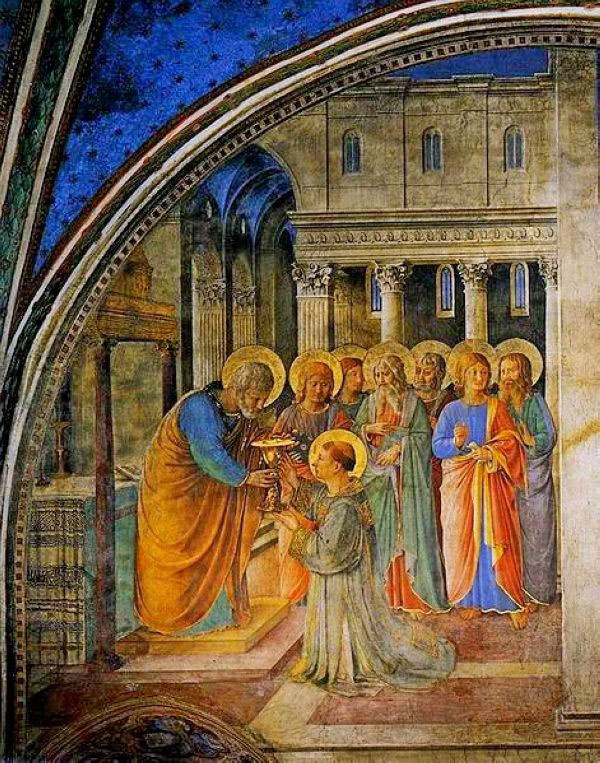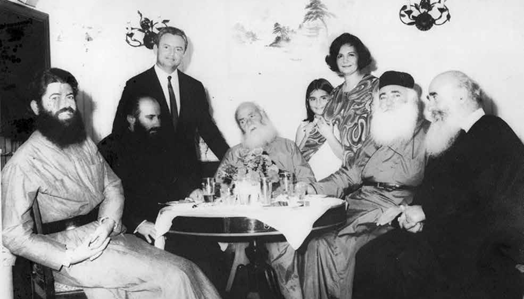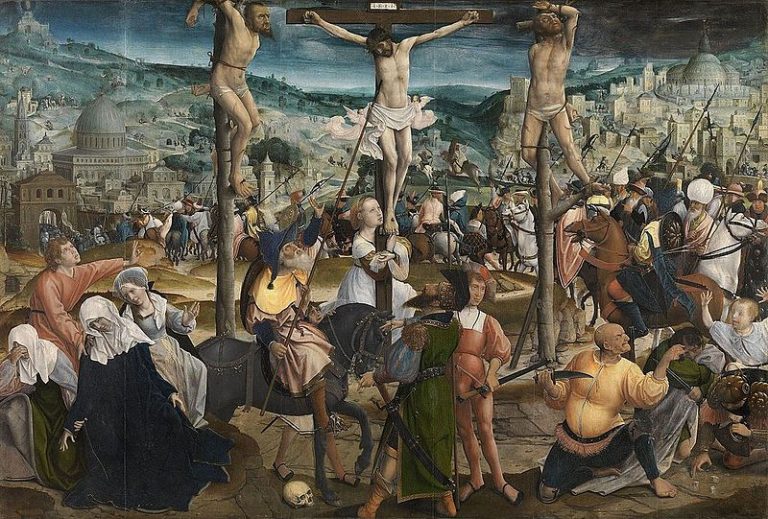The 7 Deacons: Missionary Associates Wanted
In the early years of the life of the Church, the grace of God and the energy of the Holy Spirit worked, of course, through the apostles. The supreme purpose was the effective spread of the Gospel, the joyful news of the abolition of the great dead end of humanity, death, through the resurrection of Jesus Christ. This Grace, which then acted through the newly converted Christians, did not abolish humanity and, therefore, neither did it abolish the human passions and weaknesses of the first Christian community. A great problem arose within the Church and, by extension, in the thinking of the apostles. “Complaints began to be made by the Hellenists against the Jews, because their widows were neglected in the daily distribution” (Acts 6:1). The solution was given by the apostles directly and forcefully, “It is not right for us to leave the word of God and serve at tables. Seek, therefore, brethren, seven men among you of good reputation, full of the Holy Spirit and wisdom, whom we will place in this work. We, on the other hand, will devote ourselves to prayer and the ministry of preaching” (Prax. 2-4). Thus seven deacons were elected for the charitable ministry of the Body of Christ. They were Stephen, Philip, Prochorus, Nicanoras, Timon, Parmenas and Nicholas, who took up their mission after the apostles “prayed and laid hands on their heads” (Acts 6:6).
- Archdeacon Stephen was stoned to death after his sublime confession before the rulers of Israel. He first preached the Word of God in word and then taught it in deed. He finally became an imitator of Christ by forgiving those who stoned him and surrendered his spirit. His memory is commemorated on December 27.
- Prochoros, after ministering to the poor brothers, followed in the footsteps of St. John the Theologian in his missionary activity. He was St. John the Theologian’s secretary in the writing of the holy book of Revelation. He then became bishop of Nicomedia and, after shepherding the newly converted Christians for several years, he rested in peace. His memory is commemorated on 28 July.
- Saint Nicanor, according to Saint Nicodemus, surrendered his soul to God by stoning on the same day that Archdeacon Stephen was stoned. His memory is commemorated on July 28.
- Saint Parmenas, while ministering the Word of God in the work of the Church, fell seriously ill and surrendered his soul to the Most High in front of the Holy Apostles. His memory is commemorated on July 28.
- Saint Timon was ordained by the Holy Apostles as Bishop of Vostra in Arabia. After preaching the Gospel and indoctrinating many in Christian rites, he was savagely beaten and thrown into the fire by unbelievers. His memory is commemorated on 28 July.
- Apostle Philip had four daughters and became a partner of the Apostle Paul. After ministering to the poor, he followed a missionary path and preached in Samaria where he made Simon the Magician a Christian. He also baptized the unfortunate bishop of Queen Candace of Ethiopia. He then preached in two cities, Azothon and Tralli, which was in Asia Minor. He baptized many Christians and, after building a temple, ended his earthly life in peace. His memory is commemorated on 11 October.
- For Deacon Nicholas, a convert of Antiochus, our information is scanty. Some sacred writers associate him with the Nicolaitan sect mentioned in Revelation. Clement of Alexandria, however, maintains that he has no connection with the Nicolaitan heresy. The Nicolaitans were also called Balaamites, because the name Balaam was rendered Nikolaos in Greek (Panagiotis Christou et al.). The day of his feast is not known to us.

The 7 Deacons: Missionary models
Three points worth keeping from the above incident and from the lives of the seven deacons are the following:
- The “daily” interest of the Church in “good works” and the application of the words of Christ by the apostles: “I was hungry and you gave me food, I was thirsty and you gave me water, I was a stranger and you took me into your house, I was naked and you clothed me, I was sick and you visited me, I was in prison and you came to me.” (Matt. 25:35-36).
- Equality between Jewish Christians and Hellenists, without allowing a moment of injustice and racism. After all, the greatest effort and the most effective way of dealing with this scourge of racism and inequality was made by Christ, His Church and its teachings.
- The obedience of the deacons to the work of the Church for the purpose of carrying out its charitable action impels us, each one of us individually, with whatever problems or difficulties we “carry”, to become collaborators of the apostles, collaborators of those who continue the work of the apostles in the nations, successors of the seven deacons of our Church in whatever way and at whatever cost.




